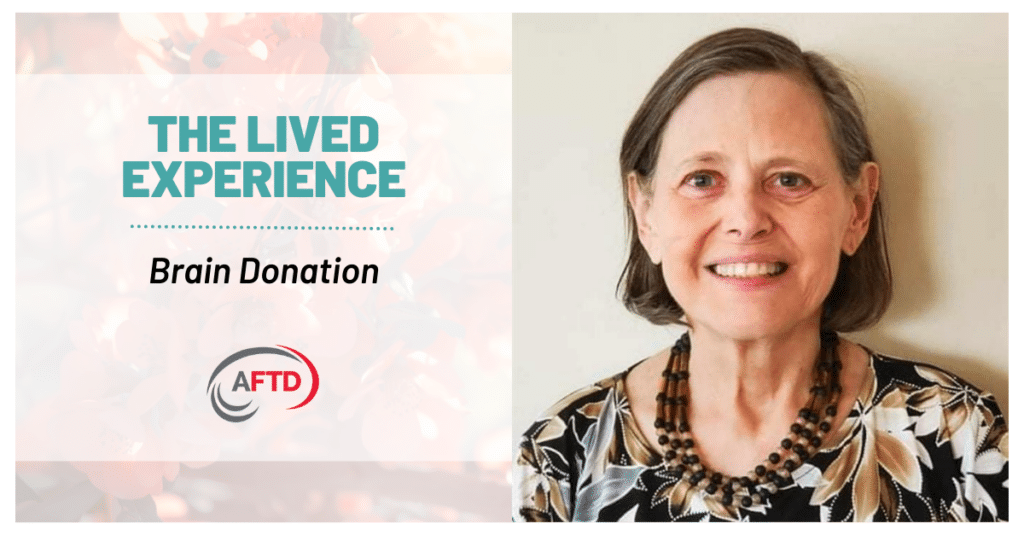The Lived Experience: Brain Donation

By Cindy Odell
I was diagnosed with bvFTD more than ten years ago. My immediate reaction was one of shock even after considering that two of my relatives were currently dealing with dementia, and many had already died from it. The second reaction, the one that has stayed with me was, “this has to end! How can I use my diagnosis to make a difference so my generation is the last to be afflicted with FTD?”
Having that determination has somewhat (mentally anyway) eased the realities of my progression. Maybe, just maybe, I really can help make a difference in the search for a cure!
I never worried about how my family would feel about my donating my brain to research. There was no question in my mind. When I explained my wishes, my family readily accepted my decision.
I explained the necessity of learning if, as we suspected, my FTD was genetic. If it was, I felt that other family members needed to be made aware so they could consider being tested and preparing for the future. I even suggested they invest in long-term care insurance and additional life insurance. Some were shocked and offended by this. I explained I was not suggesting that they have FTD, just that even the remote chance is worth preparing for now, because after diagnosis, it is too late. Besides, what could it hurt?
Learning if my FTD is genetic was just the first of my reasons. Beyond that, I knew that research was the only way to find a means of treating FTD and, eventually, I hope, curing it.
My FTD diagnosis came from a neuropsychologist my family doctor had referred me to, located at a medical center with a dementia research department. There my diagnosis was confirmed, and I was re-evaluated on a regular basis in conjunction with their research. During my initial evaluation, I was given information about brain donation along with cards to give to family members, friends, and my other physicians. I have one taped to the top of my desk, right in the middle, where no one can miss it. I carry one in my wallet next to my state ID card.
In the meantime, before anyone can have my brain, I still use it, along with my mouth and my writing skills, to spread the word. Friends and family have told me that, since my diagnosis, I am boring. I suppose I may seem that way, but I can ignore their eye rolls.
There are things I can no longer join in on and I willingly admit to talking too often. But to me, at this point, that is the most important thing I can do… because I love them. I won’t stop advocating, and since Brain Awareness Week takes place this month, they will be hearing it one more time.
Interested in learning more about brain donation? Visit AFTD’s Brain Donation page for information and guidance on brain donation.
By Category
Our Newsletters
Stay Informed
Sign up now and stay on top of the latest with our newsletter, event alerts, and more…
